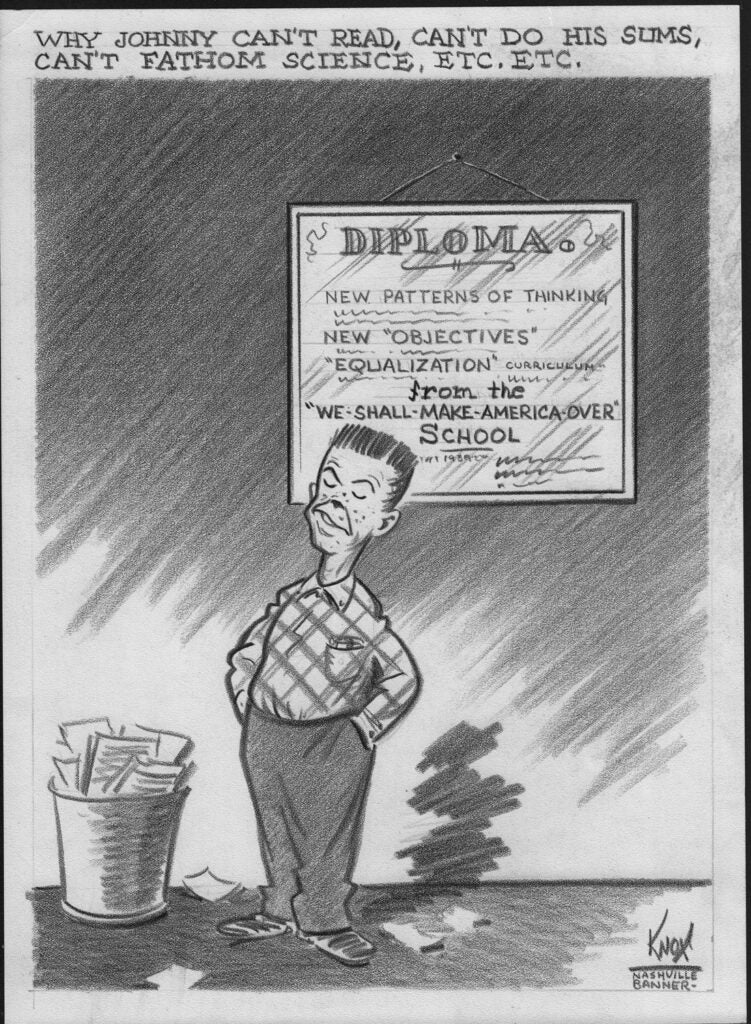1957.02.05 “Why Johnny Can’t Read…” (February 5, 1957)
by John (Jack) Gill Knox, Jr. (1910-1985)
11 x 15 in, grease pen on textured paper
Coppola Collection

After completing a cartoon correspondence course in the early 1930s, Knox joined the staff of the Nashville Evening Tennessean in 1933. In 1934 he succeeded J.P. Alley as cartoonist at the Memphis Commercial Appeal, where he worked for the next 11 years. Because of an alcohol problem, Knox worked as a cowboy in Texas in 1945-1946, and he became active in Alcoholics Anonymous. He became editorial cartoonist for the Nashville Banner on April 1, 1946 and worked there until his retirement in 1975.
Knox was a conservative, and it shows here.
“Why Johnny Can’t Read—And What You Can Do About It” was a 1955 book-length exposé on American reading education by Rudolf Flesch. It was an immediate bestseller, stayed on the charts for almost a year, and became an educational cause célèbre. In fact, the “reading wars” (by word recognition versus phonics) never ended, and it is still one of those false dichotomies that educationalists love to bicker about.
The Knox commentary is not about reading, it is a wholesale attack on education (Johnny cannot read, do math, understand science, etc.), and the cause is progressivism (stop me if any of this sounds familiar, will you?).
New Patterns of Thinking are a cause.
New “Objectives” (quote/unquote) are the cause.
And “equalization” is a cause.
Let me tell you about equalization.
As school segregation was written into the Constitution of many states, and as the movement towards integration was growing, there had been decades of toothless rhetoric about the “separate but equal” doctrine. Starting after WW2 and going into the 1970s, many southern states pursued “Equalization Programs” as a last-ditch effort to maintain school segregation. Schools (facilities and programs), teacher pay, and so on, would be equalized across the state. Many proponents of integration supported the idea, figuring that the cost of these improvements would be so prohibitory that integration would be seen as a logical option.
No comment.
The world I was born into – February 5, 1957.

